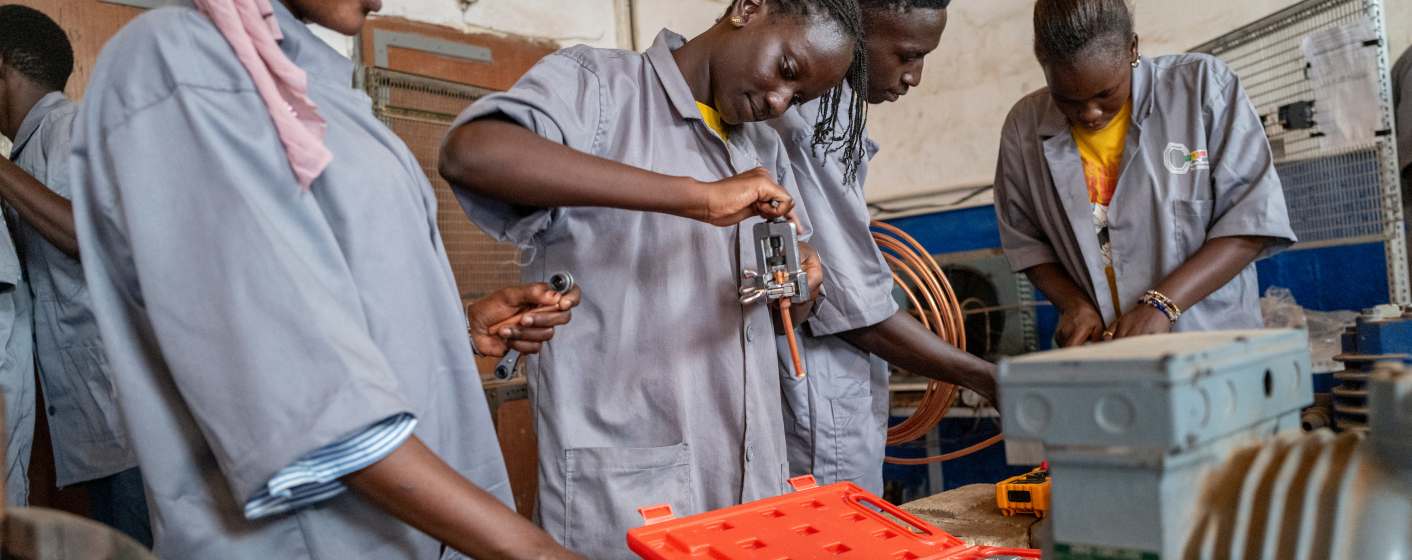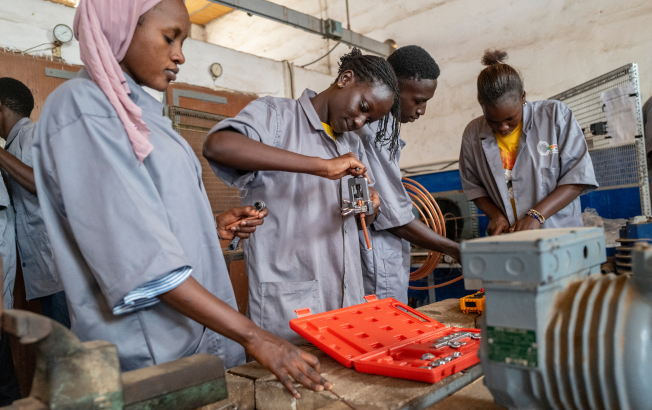PGEFTP: first course in vocational training policy management completed
Over 130 applications were received for this inaugural course demonstrating the importance of the topic and the great interest that vocational training system managers have in capacity building. Thirty-four candidates were selected to participate in the first course, from seven different countries: Benin, Burundi, Madagascar, Mali, Mauritania, Senegal and Togo.
30 Novembre 2021
A virtual closing ceremony for the first batch of participants of the IIEP-UNESCO Dakar training course in Steering and Management of Technical and Vocational Education and Training (PGEFTP) was held on Tuesday 30th November 2021.
Over 130 applications were received for this inaugural course demonstrating the importance of the topic and the great interest that vocational training system managers have in capacity building.
Thirty-four candidates were selected to participate in the first course, from seven different countries: Benin, Burundi, Madagascar, Mali, Mauritania, Senegal and Togo. Of these 34 participants, 27 successfully completed the training, which represents a success rate of 79%.
The course modules were rolled out from October 2020 to May 2021 followed by the completion of a country group project during June and July. The participants showed motivation and perseverance despite the conditions due to the COVID-19 pandemic, which the two face-to-face meetings initially planned to be cancelled.
"Although it was developed before the COVID-19 pandemic, this training was a proactive solution to the need to adapt our training systems to ICTs and to the development of e-learning," said a participant from Togo at the closing ceremony.
Developing specialised TVET skills
The objective of this first course was to strengthen the knowledge and skills of national TVET system managers, both at the strategic policy level and at the operational level of system management.
"For most of us who are in the process of planning, programming and budgeting our education and training systems, the notions and tools that we have capitalised on during this training will enable us to become actively involved in the revision of the education sector plan in Benin, one of the essential links of which is the TVET sub-sector,” said a participant from Benin.
The PGEFTP course led to teamwork and sharing of experiences between different categories of actors involved in the steering and management of the TVET system, both at the central and deconcentrated levels. A participant from Madagascar indicated that, "the exchange of good practices on the different themes addressed throughout the training is really fruitful, particularly the sharing of successful experiences from the different participating countries, as well as the contribution of international experts.”
As a result of the training course, participants are now able to analyze the socio-political and socio-economic environment in which national TVET systems are developed and to steer, manage and implement TVET policy, both at central and devolved levels.


